Premium Only Content
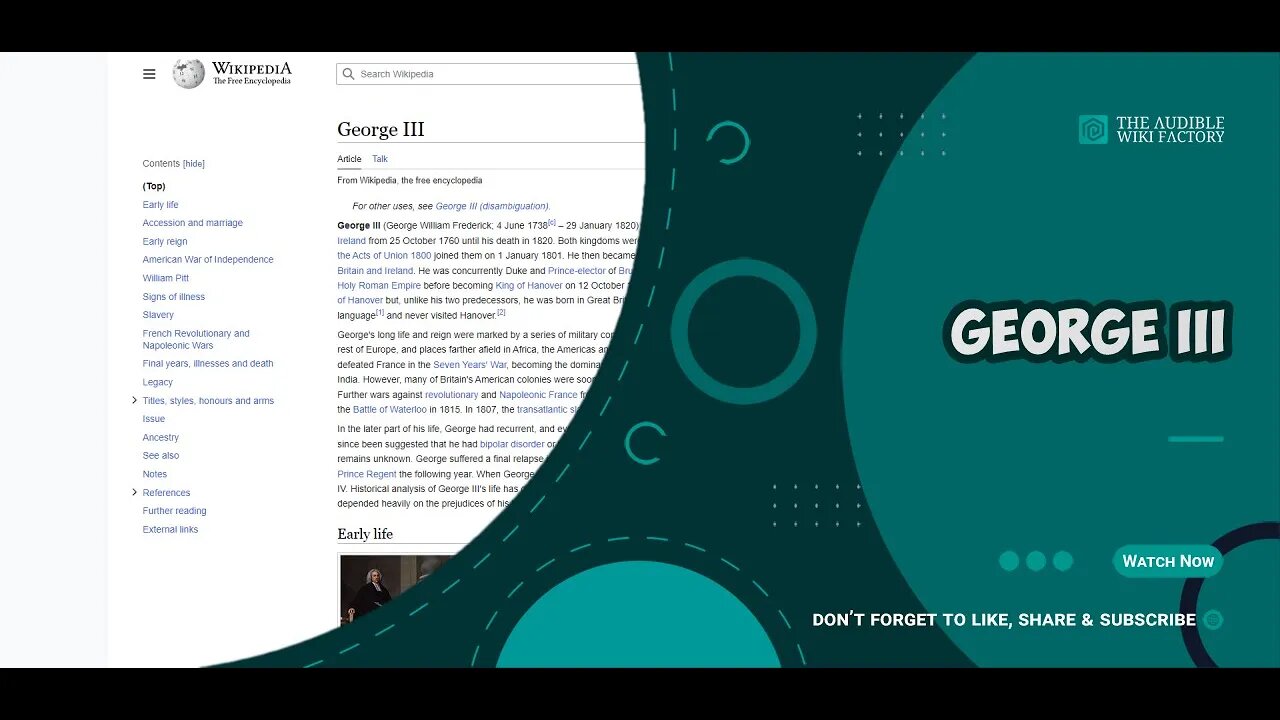
George III was King of Great Britain and of Ireland from 25 October 1760 until his death in
George III (George William Frederick) was King of Great Britain and of Ireland from 25 October 1760 until his death in 1820. Both kingdoms were in a personal union under him but the Acts of Union 1800 joined them on 1 January 1801. He then became King of the United Kingdom of Great Britain and Ireland. He was concurrently Duke and Prince-elector of Brunswick-Lüneburg ("Hanover") in the Holy Roman Empire before becoming King of Hanover on 12 October 1814. He was a monarch of the House of Hanover but, unlike his two predecessors, he was born in Great Britain, spoke English as his first language and never visited Hanover.
George's long life and reign were marked by a series of military conflicts involving his kingdoms, much of the rest of Europe, and places farther afield in Africa, the Americas and Asia. Early in his reign, Great Britain defeated France in the Seven Years' War, becoming the dominant European power in North America and India. However, many of Britain's American colonies were soon lost in the American War of Independence. Further wars against revolutionary and Napoleonic France from 1793 concluded in the defeat of Napoleon at the Battle of Waterloo in 1815. In 1807, the transatlantic slave trade was banned from the British Empire.
In the later part of his life, George had recurrent, and eventually permanent, mental illness. Although it has since been suggested that he had bipolar disorder or the blood disease porphyria, the cause of his illness remains unknown. George suffered a final relapse in 1810, and his eldest son, the Prince of Wales, became Prince Regent the following year. When George III died in 1820, the Regent succeeded him as King George IV. Historical analysis of George III's life has gone through a "kaleidoscope of changing views" that have depended heavily on the prejudices of his biographers and the sources available to them.
EARLY LIFE
George was born on 4 June 1738 at Norfolk House in St James's Square, London. He was a grandson of King George II, and the eldest son of Frederick, Prince of Wales, and Augusta of Saxe-Gotha. As he was born two months prematurely and thought unlikely to survive, he was baptised the same day by Thomas Secker, who was both Rector of St James's, Piccadilly, and Bishop of Oxford. One month later he was publicly baptised at Norfolk House, again by Secker. His godparents were King Frederick I of Sweden (for whom Lord Baltimore stood proxy), his uncle Frederick III, Duke of Saxe-Gotha (for whom Lord Carnarvon stood proxy), and his great-aunt Sophia Dorothea, Queen in Prussia (for whom Lady Charlotte Edwin stood proxy).
George grew into a healthy, reserved and shy child. The family moved to Leicester Square, where George and his younger brother Prince Edward, Duke of York and Albany, were educated together by private tutors. Family letters show that he could read and write in both English and German, as well as comment on political events of the time, by the age of eight. He was the first British monarch to study science systematically.
Apart from chemistry and physics, his lessons included astronomy, mathematics, French, Latin, history, music, geography, commerce, agriculture and constitutional law, along with sporting and social accomplishments such as dancing, fencing and riding. His religious education was wholly Anglican. At the age of 10, George took part in a family production of Joseph Addison's play Cato and said in the new prologue: "What, tho' a boy! It may with truth be said, A boy in England born, in England bred." Historian Romney Sedgwick argued that these lines appear "to be the source of the only historical phrase with which he is associated".
King George II disliked the Prince of Wales and took little interest in his grandchildren. However, in 1751,...
LINK TO ARTICLE: http://en.wikipedia.org/wiki/George_III
TAGS: George III, Royal Botanic Gardens Kew, Regency era, Princes of Wales, Princes of Great Britain, Prince-electors of Hanover, People from Westminster, Monarchs of the United Kingdom, Monarchs of the Isle of Man, Monarchs of Great Britain, Knights of the Garter, Kings of Hanover, Heirs to the British throne, English pretenders to the French throne, English people with disabilities, Dukes of Saxe-Lauenburg, Dukes of Edinburgh, Dukes of Bremen and Verden, Deaths from pneumonia in England, Deafblind people from the United Kingdom, Burials at St George's Chapel Windsor Castle, British people of the American Revolution, British book and manuscript collectors, British art collectors, Blind royalty and nobility, Blind people from England, 18th-century Irish monarchs, 19th-century British monarchs, 18th-century British people, George III of the United Kingdom
#GeneralKnowledge #AudibleWikiFactory #Audible #Wikipedia #GeorgeIII
-
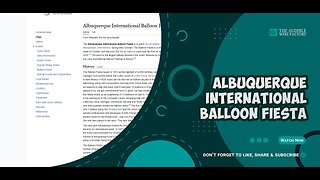 9:22
9:22
The Audible Wiki Factory
1 year agoThe Albuquerque International Balloon Fiesta is a yearly hot air balloon festival that takes
704 -
 39:01
39:01
The Why Files
8 days agoSymbols of Power: Deciphering the Language of the Secret Elite
86.9K59 -
 1:07:16
1:07:16
Edge of Wonder
6 hours agoWho Are the Men in Black? The CIA Connection
7.85K2 -
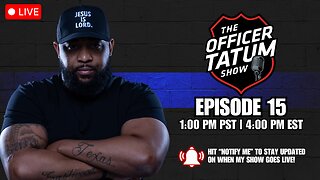 45:17
45:17
The Officer Tatum
7 hours agoLIVE: Scott Jennings INCINERATES CNN, DNC Union BEGS For Money, + MORE | OT Show EP 15
88.6K102 -
 14:45
14:45
Tundra Tactical
3 hours ago $1.34 earnedFirst Impression of the Labradar LX Chronograph.
20.6K -
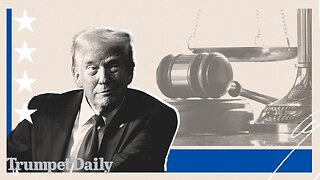 54:52
54:52
LFA TV
23 hours agoAnti-Trump Lawfare Has Failed | Trumpet Daily 11.26.24 7PM EST
21.1K1 -
 29:44
29:44
Standpoint with Gabe Groisman
10 hours agoEP. 59. The State of Western Militaries Today. Col. Richard Kemp
42.6K3 -
 47:24
47:24
Candace Show Podcast
5 hours agoConor McGregor: GUILTY—But Of What? | Candace Ep 111
107K232 -
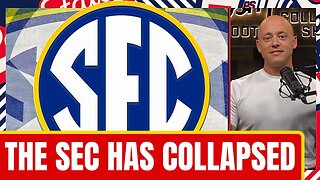 13:19
13:19
Josh Pate's College Football Show
6 hours ago $1.29 earnedThe SEC has COLLAPSED!! Updated CFP Picture with Josh Pate
18.3K1 -
 45:59
45:59
PMG
21 hours ago $0.26 earned"Hannah Faulkner and Sabrina Cardone | Empowering the Next Generation"
12.6K1